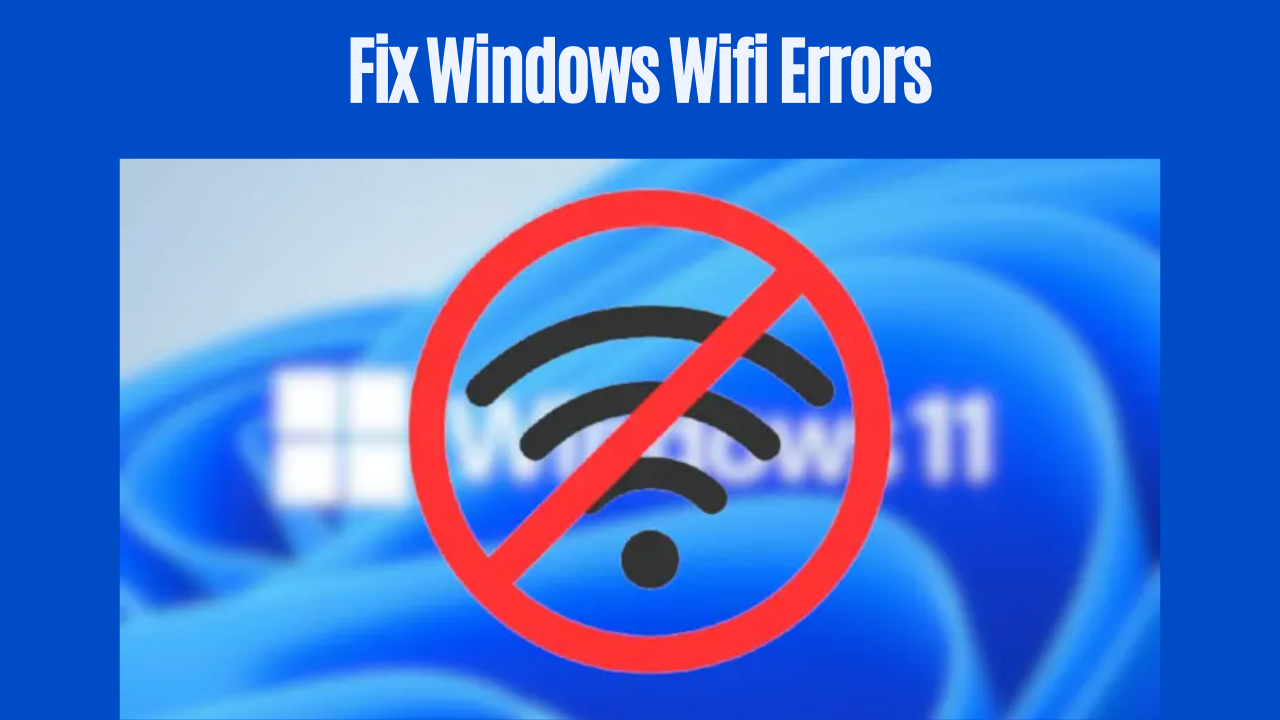How to Fix Usual WiFi Errors in Windows
Hey there! Having trouble with your WiFi on a Windows computer? You’re not alone. WiFi issues can pop up for various reasons, such as outdated drivers, wrong settings, or even physical barriers like thick walls.
Sometimes, it’s just a minor hiccup in the network. But no worries, fixing wifi isn’t that complicated! We’re here to guide you through some simple steps to get your internet connection back on track.
Step 1: Restart Your Devices
Let’s start simple. Often, a quick restart of your computer and router can work wonders. It’s like giving them a fresh start. Just turn off your computer and unplug your router for about a minute, then plug it back in. Once your router’s lights stabilize, turn on your computer and check your WiFi.
Step 2: Check Your WiFi Settings
Make sure you’re connected to the right network. Click on the WiFi icon in your taskbar, and see if your network is listed. If it’s there, try disconnecting and reconnecting. If it’s not, you might be out of range, or the network could be down.
Step 3: Run the Windows Network Troubleshooter
Windows has a handy tool called the Network Troubleshooter. It’s like a detective that helps find and fix common WiFi problems. Here’s how to use it:
- Go to ‘Settings’ > ‘Update & Security’ > ‘Troubleshoot’.
- Select ‘Internet Connections’ and then ‘Run the troubleshooter’.
- Follow the on-screen instructions.
This tool can often find and fix the problem automatically.
Step 4: Update Your Network Drivers
Drivers are like interpreters that help your computer talk to the WiFi. If they’re outdated, communication can get messed up. Here’s how to update them:
- Right-click the ‘Start’ button and select ‘Device Manager’.
- Find ‘Network adapters’ and expand it.
- Right-click on your WiFi adapter and choose ‘Update driver’.
- Select ‘Search automatically for updated driver software’.
If Windows finds a new driver, it will install it for you.
Step 5: Reset Network Settings
If the above steps don’t work, try resetting your network settings. This will erase all network information and set things back to their default. Here’s how:
- Go to ‘Settings’ > ‘Network & Internet’.
- Scroll down and select ‘Network reset’.
- Click on ‘Reset now’.
Your computer will restart, and you’ll need to reconnect to your WiFi network.
Step 6: Check for Physical Obstacles
Is your router hidden behind a bunch of books or walls? These can block or weaken the WiFi signal. Try moving your router to a more open space or moving your computer closer to the router.
Step 7: Forget and Reconnect to the Network
Sometimes, your computer needs a fresh start with your WiFi network. Here’s how to forget and reconnect:
- Go to ‘Settings’ > ‘Network & Internet’ > ‘WiFi’.
- Click on ‘Manage known networks’.
- Find your network, click on it, and select ‘Forget’.
- Now, reconnect to the network by entering your WiFi password again.
Step 8: Check for Windows Updates
Windows updates can sometimes fix WiFi issues. Here’s how to check for updates:
- Go to ‘Settings’ > ‘Update & Security’.
- Click on ‘Check for updates’.
If there are any updates, install them and see if that fixes your WiFi issue.
Step 9: Disable VPN or Antivirus Temporarily
Sometimes VPNs or antivirus programs can interfere with your WiFi. Try turning them off temporarily to see if that solves the problem. Remember to turn them back on after testing!
Step 10: Contact Your Internet Service Provider
If none of these steps work, there might be an issue with your internet service provider. Give them a call. They can check if there are problems in your area or with your account.
Dealing with WiFi issues can be frustrating, but these steps should help most of the time. Remember, technology can be quirky, but with a little patience and some troubleshooting, you can usually get things running smoothly again. Happy surfing!

